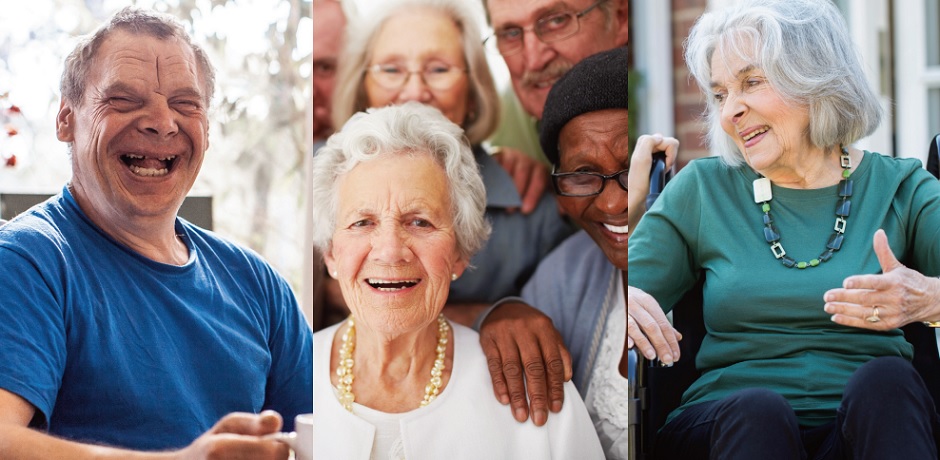)
Online advice for carers
Local authority websites vary considerably in COVID-19 support information provided for carers, study finds.
Collaboration needed between local authorities and their contracted third sector organisations to maximise impact of services provided to carers.
The COVID-19 pandemic has provided unparalleled challenges for carers of significant others. It has also impacted on the levels of support local authorities can provide to carers. Websites are an increasingly important tool for local authorities and their contracted provider organisations.
A study led by Paul Willis and Liz Lloyd at the University of Bristol has reviewed how local authorities used their websites to share information and provide advice and support to carers during the pandemic.
The study found that outsourcing support for carers to Third Sector Organisations (TSOs) has created a complex and fragmented system in England, demonstrated on some local authority websites.
Online support
The study reviewed the websites of 150 Local Authorities (LAs) in England, aiming to identify how support and services for carers has been affected by the COVID-19 pandemic, and how they use their websites to inform and advise carers about support and services available to them.
Most websites were updated to reflect the change in services provided by LAs due to the impact of Covid-19, such as a switch from face-to-face to online and telephone services or closure of centres.
All LAs provided general advice on shielding and infection control, community hubs and helplines for access to food and medicines. Most offered advice on mental health difficulties, particularly isolation and loneliness, on money problems and warnings on scams.
Connections
During the COVID-19 pandemic life ‘online’ has enabled social connections to be maintained and information to be shared by those who can use this technology.
Innovations such as telephone counselling, newsletters and online learning have been developed by provider organisations (LAs or TSO’s) to support carers during the pandemic. Support for carers’ health and wellbeing was also found, such as online social events, self-help sessions on yoga and meditation and advice on keeping healthy.
The research found that some organisations provided IT training for carers, and some offered loans of iPads and laptops to allow carers access to online support.
These provisions were often available to those ‘belonging’ to a carer organisation, reinforced by the Facebook/Instagram group membership, which promoted togetherness and emphasised the message that ‘you are not alone’.
Outsourcing to third sector organisations
It found that over half of the local authorities reviewed had contracted all their services to one or more TSOs, such as Carers UK.
Some TSOs offered different services to different areas under one website; some local authority websites directed carers to a third sector organisation in a neighbouring authority; and some merely provided a list of organisations for carers to contact. A small number did not appear to have any services for carers according to their websites.
While half of the websites provided support for new carers, TSOs websites often encouraged first time visitors to ‘join’ the organisation or required that they register for an assessment of needs before obtaining support. The research team had concerns that this could discourage a carer seeking further information and that the sense of togetherness emphasised by TSOs websites may act as a barrier to those new to caring, those who do not identify as carers.
Dr Paul Willis, who led the study with Prof Liz Lloyd, suggests that local authorities and provider organisations would benefit from better collaboration in developing messaging for carers, to ensure clarity and consistency about what services are offered.
User friendliness
The research team identified that half of the websites provided clear, accessible and up to date information, recognising the anxieties caused by the pandemic and providing reassurance with a warm tone.
However, the research found vast differences between websites in terms of warmth of messaging as well as clarity and accessibility of the information provided. While some websites provided minimal information and appeared indifferent to carers, others conveyed a strong sense that carers are highly valued.
In addition, the contractual relationships between LAs and TSOs had created some unnecessary complexity, and websites often had technical difficulties that made navigating links frustrating. For example, some websites buried crucial links or assumed advanced IT skills of those visiting them.
The research suggests that in order to maximise the impact of the services provided by LAs, attention should be given to the layout and presentation of their website, making sure the information is accessible, warm in tone, and up-to-date. LA should also make clear that they maintain an interest in carers’ wellbeing, even when the service has been outsourced.
In order to maximise the impact of services, the research team recommend that websites are ‘test-driven’ with a range of carers to ensure that they are accessible to people from all backgrounds and ages. They also suggest that good practice could be shared easily through national organisations, either statutory or third sector, where required.
Full summary findings
NIHR SSCR (2021) Online Advice to Carers: An Updated Review of Local Authority Websites in England, Research Findings 163, NIHR School for Social Care Research, London.
Further information
This study was funded by the NIHR School for Social Care Research and led by Dr Paul Willis and Professor Liz Lloyd at the School for Policy Studies at the University of Bristol.












